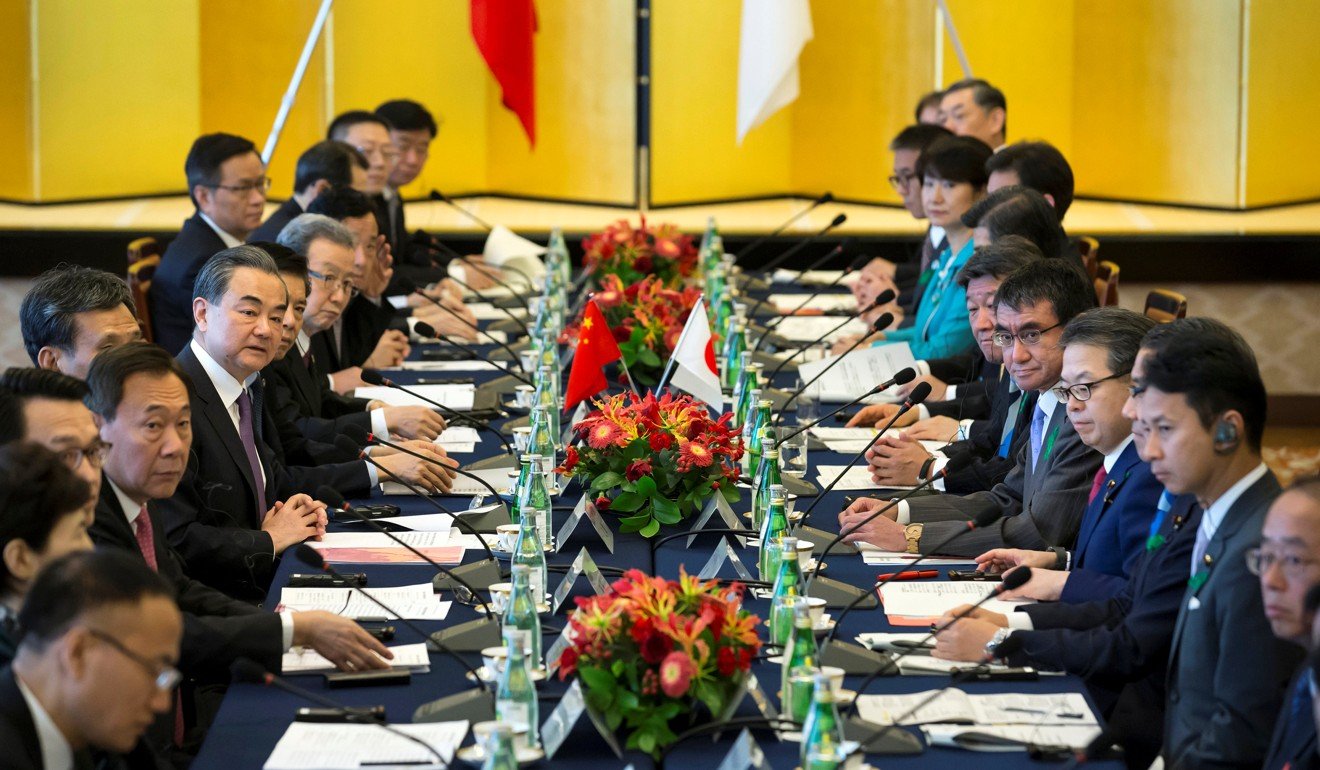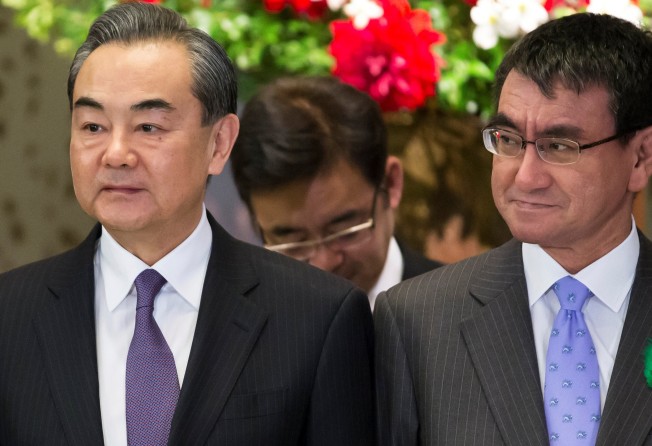
Japan and China revive long-stalled talks with pledge to reset economic ties
Eight years on and Tokyo and Beijing are back at the negotiating table amid feats of a US-China trade war

Japanese Foreign Affairs Minister Taro Kono and his Chinese counterpart kicked off the first high-level economic talks between their nations in eight years on Monday, at a time of tense trade relations with the United States for both countries.
Concern is growing about a trade row between China and the United States in which the two nations have threatened each other with tariffs. Japan has come in for criticism from US President Donald Trump on trade and been hit with tariffs on steel and aluminium, but Japan has not yet threatened counter-tariffs.
China’s senior diplomat, State Councillor Wang Yi, is the first Chinese foreign minister to visit Japan in a bilateral context in nine years. He and Kono discussed a broad range of issues, including North Korea, Kono on Sunday night.
“In these eight years, both nations as well as the economic conditions surrounding them have changed greatly, even as our regional economic roles have increased,” Kono said at the start of Monday’s discussions, noting a need for a reset of their often-fraught bilateral ties.
Japanese Prime Minister Shinzo Abe and Chinese President Xi Jinping pledged last year to reset the sometimes touchy relationship between Asia’s two largest economic powers.
“I hope that today we can discuss closer, tighter economic cooperation as well as the regional and global economic situations,” Kono said.
Wang, who spent eight years in Japan as a diplomat including three as ambassador, said the changing economic climate presented fresh opportunities.
“After reopening these talks we’re both standing at new starting points to discuss future cooperation that will, I hope, lead to fresh economic growth for both nations,” he said.

Financial markets have been roiled recently over fears that a full-blown US-China trade war could shatter global trade and economic growth, and these issues are likely to be high on the agenda, along with Japanese cooperation on projects in China’s “Belt and Road Initiative”.
Japanese officials are also eager to avoid trade friction with the United States, with the issue to be discussed in the Abe and Trump talks later this week.
In addition to economic talks, China and Japan also agreed to work closely to push North Korea to abandon its nuclear programme.
“To get North Korea to abandon its nuclear weapons and missiles in a complete, irreversible and verifiable way, we agreed we must enforce the relevant Security Council resolutions and work closely together,” Kono said.
Kono said he and Wang agreed to improve ties by their leaders paying mutual visits, starting with a visit next month to Japan by Chinese Premier Li Keqiang for a trilateral summit involving South Korean President Moon Jae-in. While Wang did not specifically refer to a leadership meeting, according to China’s foreign ministry, he said his visit had established the conditions for the “next step” in high-level exchanges.
Long-fraught ties between Tokyo and Beijing deteriorated to a 40-year low after the Japanese government’s 2012 purchase of disputed islets near Taiwan sparked Chinese demonstrations, damaged trade and even raised fears of a military clash. Since taking office at the height of the dispute, Japanese Prime Minister Shinzo Abe has sought rapprochement with his country’s biggest trading partner.
“For the Abe administration, China is essential to effectively pressuring North Korea,” said Madoka Fukuda, a professor of global politics at Hosei University in Tokyo. China was motivated by a lack of transparency in US policymaking, as well as tougher American security and trade stances, she said.
Despite the diplomatic push, tensions over territory and Japan’s militarist history remain. Coastguard and military ships from both countries continue to tail one another around the uninhabited Senkaku islands, known as the Diaoyus in China. Japan’s Self-Defence Forces activated a new amphibious unit to help defend remote islands just a week ago.
Wang alluded to those tensions, citing “complex and sensitive factors” in the relationship. He urged Japan to use “history as a mirror”, and not view each other as threats.
Additional reporting by Bloomberg